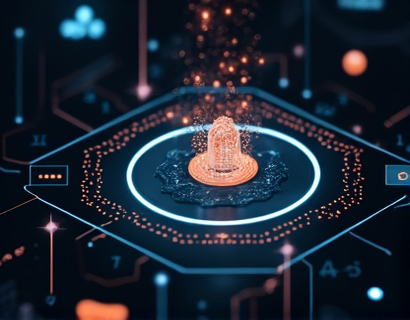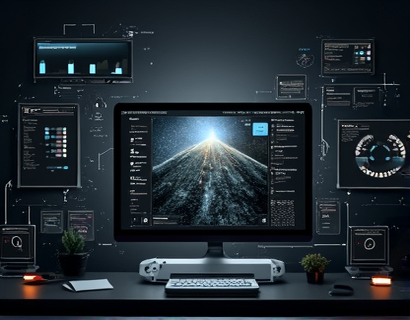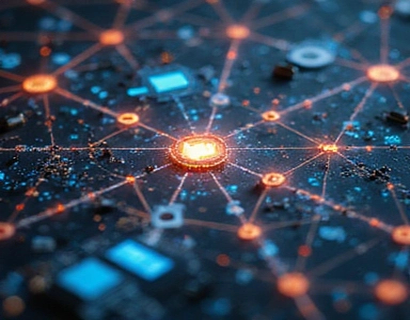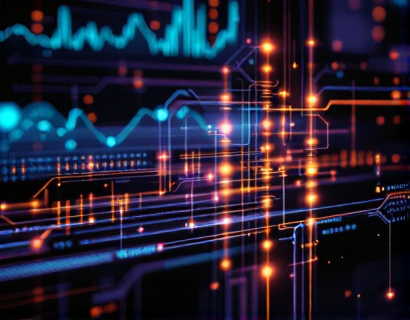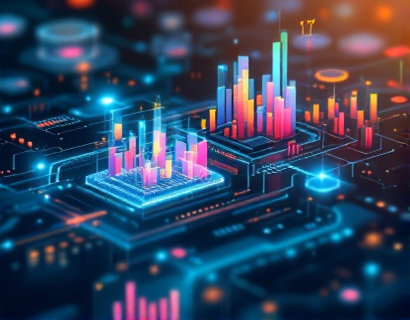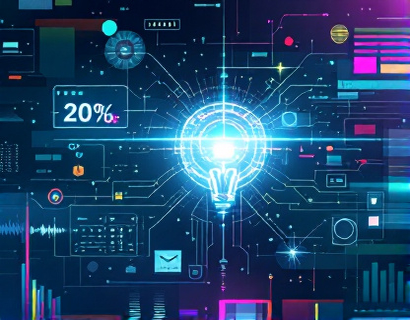Empowering Tech Innovators and Early Adopters: The Synergy of Crypto and AI
The intersection of cryptocurrency and artificial intelligence (AI) is giving rise to a new era of digital innovation, offering unprecedented opportunities for tech pioneers and early adopters. This convergence is not just a technological curiosity but a transformative force reshaping the digital landscape. As we delve into this topic, we will explore how the integration of these two cutting-edge technologies is creating next-generation digital solutions that are revolutionizing various industries and empowering users with advanced tools and services.
The Foundations of Cryptocurrency and AI
To understand the synergy between cryptocurrency and AI, it's essential to first grasp the fundamentals of each technology. Cryptocurrency, often referred to as digital or virtual currency, operates on a decentralized network known as a blockchain. This technology ensures transparency, security, and immutability, making it an ideal foundation for various financial and non-financial applications. On the other hand, AI involves the simulation of human intelligence processes by machines, particularly computer systems. These processes include learning (the acquisition of information and rules for using it), reasoning (using rules to reach approximate or definite conclusions), and self-correction.
The combination of blockchain's robust security and AI's computational prowess creates a powerful platform for innovation. AI algorithms can process vast amounts of data stored on the blockchain, extracting insights and patterns that would be impossible for humans to discern manually. Conversely, the decentralized and secure nature of cryptocurrency provides a trustless environment where AI applications can operate without the need for intermediaries, reducing costs and increasing efficiency.
Enhancing Security with AI in Cryptocurrency
One of the most significant benefits of merging AI with cryptocurrency is the enhancement of security measures. Traditional cybersecurity methods often struggle to keep pace with the evolving landscape of cyber threats. AI, however, can dynamically adapt to new threats by learning from past attacks and updating its defenses in real-time. In the context of cryptocurrency, AI can be used to detect and prevent fraudulent activities such as phishing, hacking, and market manipulation.
For instance, AI-driven systems can analyze transaction patterns and identify anomalies that indicate malicious behavior. These systems can automatically flag suspicious activities and trigger security protocols to safeguard user assets. Moreover, AI can enhance the security of smart contracts by verifying their code for vulnerabilities and ensuring that they execute as intended. This not only protects users but also builds trust in the cryptocurrency ecosystem.
Optimizing Blockchain Performance with AI
Blockchain technology, while revolutionary, faces challenges related to scalability and efficiency. Transaction processing times and energy consumption are critical issues that need addressing to make blockchain more viable for widespread use. AI can play a pivotal role in optimizing blockchain performance by improving consensus mechanisms, transaction validation, and network management.
AI algorithms can predict network congestion and adjust parameters to optimize transaction throughput. For example, machine learning models can analyze historical data to forecast peak usage times and dynamically allocate resources to maintain smooth operations. Additionally, AI can assist in the development of more energy-efficient consensus algorithms, reducing the environmental impact of blockchain networks. This is particularly important as the world becomes more conscious of the ecological footprint of digital technologies.
Personalized User Experiences through AI in Crypto
The integration of AI in cryptocurrency platforms can significantly enhance user experiences by providing personalized services. AI-driven recommendation systems can analyze user behavior and preferences to suggest relevant financial products, investment strategies, and educational resources. This level of personalization not only improves user satisfaction but also fosters a more engaged and informed community.
Furthermore, AI can facilitate the creation of decentralized applications (dApps) that offer tailored experiences based on individual user needs. For example, a dApp could use AI to analyze a user's financial goals and provide customized investment portfolios within the cryptocurrency ecosystem. This not only simplifies the investment process but also makes it more accessible to a broader audience.
AI-Powered Cryptocurrency Trading and Analysis
Trading in the cryptocurrency market is both exciting and challenging, given the high volatility and complexity of the assets involved. AI can transform the trading landscape by providing advanced analytical tools and automated trading systems. Machine learning algorithms can process vast amounts of market data, including historical prices, news sentiment, and social media trends, to generate predictive insights.
AI-driven trading bots can execute trades based on these insights, executing strategies that human traders might miss. These bots can operate 24/7, adapting to market conditions in real-time and maximizing returns. Additionally, AI can help traders identify trends and patterns that are not immediately obvious, providing a competitive edge in the market. This democratizes access to sophisticated trading tools, empowering both novice and experienced traders.
Supply Chain Optimization with Blockchain and AI
The impact of blockchain and AI extends beyond the cryptocurrency space, revolutionizing supply chain management. By combining these technologies, businesses can achieve greater transparency, efficiency, and traceability. Blockchain provides a secure and immutable ledger for recording transactions, while AI can optimize various stages of the supply chain, from production to delivery.
AI can predict demand more accurately by analyzing historical sales data, market trends, and external factors such as weather and economic indicators. This helps in optimizing inventory levels and reducing waste. Additionally, AI can streamline logistics by optimizing routes and schedules, reducing transportation costs and delivery times. The transparency provided by blockchain ensures that all parties in the supply chain have access to real-time, verifiable information, enhancing trust and collaboration.
Smart Cities and Infrastructure: A AI and Blockchain Synergy
The convergence of AI and blockchain is also transforming urban planning and infrastructure management, giving rise to smart cities. These cities leverage AI to manage resources efficiently and provide better services to residents. Blockchain ensures that data is secure and transparent, while AI optimizes various city functions.
For example, AI can manage traffic flow by analyzing real-time data from sensors and adjusting traffic signals to reduce congestion. Blockchain can securely record and verify the data, ensuring its integrity. Similarly, AI can optimize energy consumption in buildings and public spaces, while blockchain can facilitate peer-to-peer energy trading, allowing residents to sell excess energy back to the grid. This not only improves efficiency but also promotes sustainability.
Challenges and Considerations
While the potential of combining AI and blockchain is immense, there are several challenges that need to be addressed. One of the primary concerns is the regulatory landscape. Both cryptocurrency and AI are rapidly evolving fields, and regulations are still catching up. Ensuring compliance with existing laws while advocating for supportive policies is crucial for the sustainable growth of these technologies.
Another challenge is the technical complexity involved in integrating AI with blockchain. Developing robust and scalable solutions requires expertise in both domains, which can be a barrier for some organizations. Additionally, there is the issue of data privacy and security. While blockchain provides a secure platform, the data used to train AI models must be handled with care to prevent misuse and ensure compliance with privacy regulations.
Future Prospects and Opportunities
The future of AI and blockchain integration holds tremendous promise. As technology continues to advance, we can expect more innovative applications across various sectors, from healthcare to finance to education. The synergy between these technologies will likely lead to the development of decentralized autonomous organizations (DAOs) that combine the efficiency of AI with the trust and transparency of blockchain.
For tech innovators and early adopters, the opportunities are vast. By embracing this convergence, they can develop groundbreaking solutions that not only solve current problems but also create new markets and industries. The key is to stay informed, collaborate with experts in both fields, and continuously experiment with new ideas. The next wave of digital transformation is upon us, and those who harness the power of AI and blockchain will be at the forefront of this revolution.







